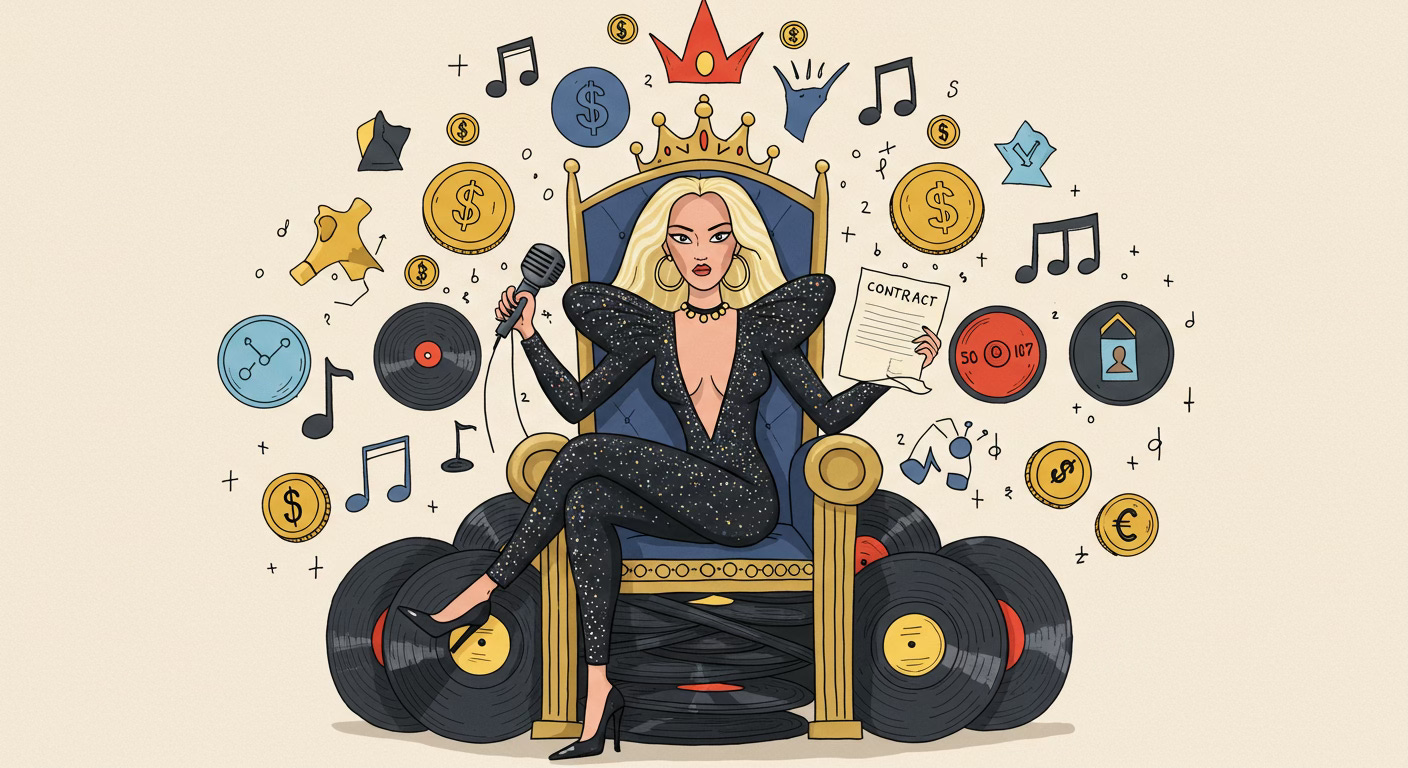Taylor Swift’s 12 brutal business truths 🦂
Every founder needs these Swiftonomics rules (yes, really!)
Most people hear the music. Entrepreneurs should study the mechanics.
Harvard Business School wrote a case study on her. Kevin Evers wrote a whole book: There’s Nothing Like This: The Strategic Genius of Taylor Swift. That’s the topic of this week’s Booksmart edition.
I’m not a Swiftie. But I’ll say this: she’s not chasing relevance. She’s setting the rules and cashing the cheques. Her net worth? An estimated $1.6 billion, making her the richest female musician on the planet.
Because Swift is a strategist. She’s built an empire by owning her masters, reinventing her product, and flipping the power balance in the music industry, while scaling her brand to billions. Her latest tour grossed $2 billion, the highest of all time.
If you’re building anything with ambition — a business, a brand, a career — Swift’s playbook will make you rethink how you lead, create, and grow.
Reading There’s Nothing Like This made me stop and rethink ownership, longevity, and how to play the game without getting played. It’s not a book about pop. It’s a book about power.
Up next: 12 brutal business lessons from Taylor Swift, pulled from the book and applied to real-world decisions. Let’s get into it. 👇🏻
Millennial Masters is brought to you by Jolt ⚡️ The UK’s top web hosting service
Business lessons from Taylor Swift
1. Bet on yourself early
📖 Taylor’s move: At just 14, Taylor turned down RCA Records when they wouldn’t let her release her own music. Instead, she signed with a brand-new label, Big Machine, that gave her creative control even though it was a risk.
💡 Your move: Back yourself before others do. When traditional paths don’t align with your vision, build your own. Early control often beats early comfort, especially if you’re building something long-term.
2. Find partners who match your hunger
📖 Taylor’s move: She said yes to Scott Borchetta’s label not because it was big, but because he was “passionate,” someone who would hustle with her, not over her.
💡 Your move: Don’t just chase status. Align with people who get your mission. Founders, co-founders, investors, even early hires; pick the ones who show up with energy, not just credentials.
3. Control your narrative
📖 Taylor’s move: From day one, she insisted on writing her own songs. She wasn’t just selling music, she was building a brand around personal storytelling.
💡 Your move: Own your message. Whether it’s product copy or personal branding, don’t outsource the story that shapes your reputation. People follow humans, not press releases.
4. Treat launches like campaigns
📖 Taylor’s move: She turned every album release into an event: dropping clues, building hype, rewarding her superfans, and owning the media cycle.
💡 Your move: Whether you’re launching a product or a brand, think like a pop star. Use build-up, storytelling, and community to turn a drop into momentum.
5. Obsess over your superfans
📖 Taylor’s move: She surprised fans with handwritten notes, secret sessions, and online shoutouts. She didn’t just build an audience, she built an army.
💡 Your move: Stop chasing everyone. Focus on your obsessed few. Listen to them, surprise them, and make them feel part of your story. They’ll do your marketing for you.
6. Reinvention is a growth strategy
📖 Taylor’s move: She jumped from country to pop to indie to alternative. Each move was risky. Each one paid off.
💡 Your move: If your audience or product is stagnating, shake things up. Don’t cling to what worked last year. Test, evolve, relaunch. Staying fresh is staying relevant.
7. Turn setbacks into content
📖 Taylor’s move: Breakups, betrayals, even public feuds, she turned them into bangers. Not just reactive, but intentional.
💡 Your move: Don’t bury the drama. Reframe it. Transparency builds trust, and mistakes make you human. If it’s part of the journey, make it part of the brand.
8. Own your masters, own your business
📖 Taylor’s move: After losing the rights to her early albums, she re-recorded and re-released them, regaining control.
💡 Your move: Don’t just build products: build assets. Own your code, your IP, your email list, your processes. Platforms can ghost you. Ownership is leverage.
9. Make your work personal
📖 Taylor’s move: Her lyrics read like diary entries. She used vulnerability as a differentiator and people connected with it deeply.
💡 Your move: Share more of the real stuff. Not everything needs polish. Customers connect with stories that reflect their own, not the polished version.
10. Play the long game
📖 Taylor’s move: She knew fame was fleeting, so she built infrastructure: loyal fans, business ventures, diversified income, and a body of work with staying power.
💡 Your move: Don’t get stuck on this quarter. Build with durability in mind: community, recurring revenue, operational freedom. Chase legacy, not just clicks.
11. Anticipate industry shifts
📖 Taylor’s move: She was early on streaming, challenged Apple and Spotify’s payment model, and used NFTs and exclusives to test new models.
💡 Your move: Don’t get caught off guard. Watch the platforms, the incentives, the user behaviour. Where the rules are shifting, new opportunities are hiding.
12. Know when to say no
📖 Taylor’s move: She walked away from deals that didn’t serve her, from early contracts to Spotify, even when the money was tempting.
💡 Your move: Not all growth is good growth. Say no to bad deals, misaligned investors, or energy-draining opportunities. Protect your time, your values, and your upside.
Every empire starts with ownership. Every comeback starts with control. Taylor just showed us how to build both.
You can hate the pop, but you can’t ignore the power. Swift turned the industry upside down and walked off with the rights. Your move. 🎤




